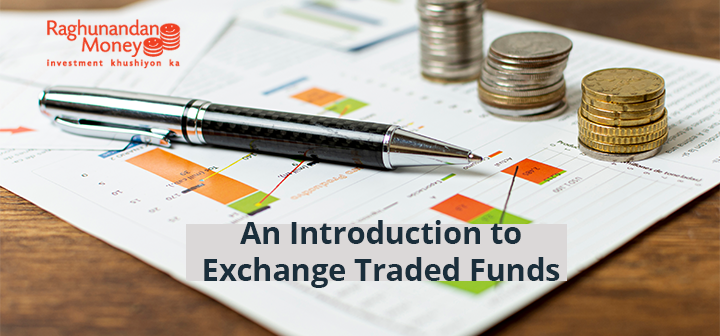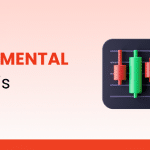Exchange Traded Funds, popularly called as ETFs, have started gaining popularity among investors. ETFs are preferred as an investment instrument owing to the double benefit offered by them i.e., the flexibility of a stock and protection of a mutual fund.
ETFs are recommended by financial planners to investors who are looking forward to investing their money for long-term equity without taking too much risk. The popularity of ETFs can also be seen in the average asset management in the retail ETF category. According to the data released by the Association of Mutual Fund in India, the average asset management in the retail ETF category rose to Rs. 394 crore in March 2012 from Rs. 59 crore in March 2009.
ETFs invest in stocks comprising of an index. ETFs unlike mutual funds can be traded on the exchange without the involvement of a fund manager. Before we discuss how an ETF works, let us first, in brief, understand what an ETF is.
What are Exchange Traded Funds?
Just like mutual funds, exchange-traded funds collect a pool of financial resources from the investors. Their financial resources are further utilized to purchase various tradable securities including shares, debentures, and bonds. Most of the exchange-traded funds are registered with the Securities and Exchange Board of India (SEBI).
Exchange-Traded Funds (ETFs) are available in four broad categories including
- Index ETF: ETFs that are benchmarked to the Nifty or the Sensex
- Gold ETFs: ETFs that are indexed to the market price of gold.
- Sectoral ETFs: Also known as thematic ETFs. These exchange-traded funds are benchmarked to a portfolio of stocks of a particular industry or sector.
- International ETFs: As the name suggests, international ETFs are the ones that invest in funds out of India. These funds are sponsored by their parent based in abroad like the US/Japan/UK etc.
How does an ETF work?
ETFs, possess the characteristics of both stocks and mutual funds. They are traded on the various exchanges in the stock market just like stocks of some company via creation blocks. Most of the exchange-traded funds are listed on the major stock exchanges like NSE and BSE and can be bought and sold from there by the investors as per their need during the trading time.
The price of the ETF is dependent on the cost of the underlying assets that are present in the pool of resources. Hence, if the price of one or more assets rises, then the share price of the ETF also rises in proportionate value. On the other hand, if the price of the asset falls, the price of the ETF falls in proportion.
The dividend that the shareholder of the ETF will receive depends on the performance and the assets managed by the concerned ETF companies.
ETFs can further be classified as actively managed or passively managed exchange-traded funds.
Actively Managed ETFs: Actively managed exchange-traded funds are the ones that are operated and managed actively by a portfolio manager. The portfolio manager carefully assesses the stock market movements and undertakes calculated risk by investing the money of the investors in companies with high growth potential.
Passively Managed ETFs: Passively managed exchange-traded funds are the ones that follow the trend of market indices. These funds invest only in the companies listed in the rising charts on the stock exchange.
Advantages of trading in Exchange Traded Funds (ETFs)
ETFs offer several advantages over the traditional open-ended index funds, these advantages are as follows:
- ETFs are Cost Effective: ETFs are traded on exchanges like stocks. The trader can buy and invest in a diversified portfolio on the same low commission as a stock. Also, the expense ratio of an exchange-traded fund is lower than the exchange ratio of a mutual fund. The other reason that makes ETFs cost-effective is the fact that they are passively managed.
- Diversification of portfolios: An ETF comes with the benefit of providing exposure to a group of financial instruments including equities, market segments, and the styles. They are even likely to mimic the returns of a country or a group of countries.
- Flexibility: Exchange Traded Funds are highly flexible and can be used by the traders as a tool to gain instant exposure to the equity market, or for arbitraging between the cash and the futures market.
- Low Tracking Error: Tracking error is the divergence between the NAV of the ETF and the underlying index. This tracking error is low in ETFs when compared to other index funds. A lower tracking error in an ETF is possible as it has lower expenses and the creation and redemption process is unique for the ETFs.
- Protection to long-term investors: ETFs protect the long-term investors from the inflow of the short-term investors as ETFs do not incur extra costs, i.e., the transaction cost for the buying and selling of the index shares. This is because there are frequent subscription and redemption of the ETFs.
Final Note
Exchange-Traded Funds are popular among the traders owing to their cost-effectiveness and high flexibility. ETFs just like mutual funds collect a pool of money from the investors who are not willing to invest in the share market directly and take the risk. Other than that, ETFs are available for intraday trading as well, a feature which the mutual funds lack. Though these instruments are gaining popularity among investors and traders, let’s not forget that they are riskier than mutual fund investments.
About Author

Stock Trading Now trade in ₹9 Per Order or ₹ 999 Per Month Plans.
Future & Options Access F&O contracts with advanced tools for hedging and speculation.
Currency Trading Trade in major currency pairs and manage forex exposure efficiently.
Commodity Trading Diversify Trading with MCX & NCDEX by Trading in Gold, Silver, Base Metals, Energy, and Agri Products.
Margin Trading Funding Boost your buying power with upto 5X, Buy now Pay Later
Algo Trading Back test, Paper Trade your logic & Automate your strategies with low-latency APIs.
Trading View Leverage Trading View charts and indicators integrated into your trading platform.
Advanced Options Trading Execute multi-leg option strategies with precision and insights.
Stock Lending & Borrowing Earn passive income by lending stocks securely through SLB.
Foreign Portfolio Investment Enable NRIs and FPIs to invest in Indian markets with ease and compliance.
IPO Invest in upcoming IPOs online with real-time tracking and instant allotment updates.
Direct Mutul Funds 0% Commissions by investing in more than +3500 Direct Mutual Fund Scheme.
Corporate FDRs Earn fixed returns with low-risk investments in high-rated corporate fixed deposits.
Stocks SIPs Build long-term wealth with systematic investment plans in top-performing stocks.
Bonds & NCDs Access secure, fixed-income investments through government and corporate bond offerings.
Depository Services Safely hold and manage your securities with seamless Demat and DP services with CDSL.
Insurance One-Stop Destination For All Your Insurance Needs. Compare Quotes from Top Insurers & save bigs.
Journey Tracing our growth and milestones over time.
Mission & Vision Guided by purpose, driven by long-term vision.
Why RMoney Platform Smart, reliable platform for all investors' needs.
Management Experienced leadership driving strategic financial excellence.
Credentials Certified expertise with trusted industry recognition.
Press Release Latest company news, updates, and announcements.
Testimonials Real client stories sharing their success journeys.
7 Reasons to Invest Top benefits that make investing with us smart.
SEBI Registered Research Trusted insights backed by SEBI-compliant research.
Our Technology Advanced tools enabling efficient online trading.
Calculators Access a suite of smart tools to plan trades, margins, and returns effectively.
Margin Calculator Instantly check margin requirements for intraday and delivery trades.
MTF Calculator Calculate MTF funding cost upfront to ensure full transparency before placing a trade.
Brokerage Calculator Know your exact brokerage charges before placing any trade.
Market Place Explore curated investment products and trading tools in one convenient hub.
RMoney Gyan Enhance your market knowledge with expert blogs, videos, and tutorials.
Performance Tracker Track our research performance with full transparency using our performance tracker.
Feedback Share your suggestions or concerns to help us improve your experience.
Downloads Access important forms, software, and documents in one place.
Locate Us Find the nearest RMoney branch or service center quickly.
Escalation Matrix Resolve issues faster with our structured support escalation process.
Back Office Log in to view trade reports, ledger, and portfolio statements anytime.
Account Modification Update personal or bank details linked to your trading account.
Fund Transfer Transfer funds instantly online with quick limit updation to your trading account.
Bank Details View our registered bank account details for seamless transactions by NEFT, RTGS or IMPS.
How to Apply IPO Step-by-step guide to apply for IPOs using your trading account.
RMoney Quick Mobile App Trade on-the-go with our all-in-one mobile trading app.
RMoney Quick login Quickly access your trading account through the RMoney Quick web-based trading.
RMoney Rocket Web Version Experience powerful web-based trading with advanced tools for algo traders.
RMoney Rocket Mobile Version Trade anytime, anywhere with our feature-rich mobile trading platform.




















